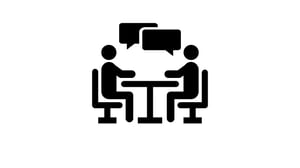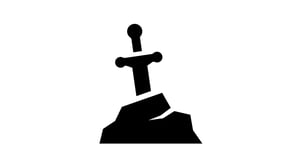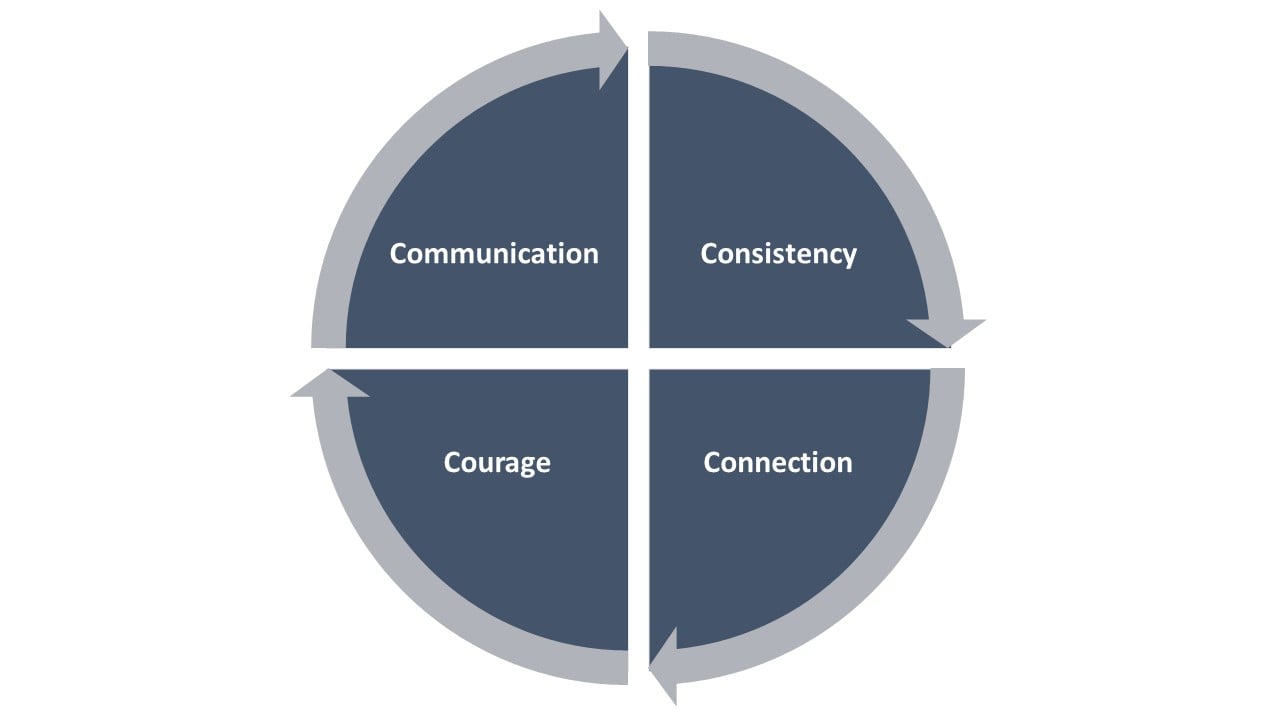In a twenty-four-hour period we spend about a third sleeping (ideally), a third doing other things, and a third working. Although COVID has changed our approach to work in many ways, we still desire to work with great people to accomplish great things. I am defining this team as a high-performance team – a group of people who enjoy working together while achieving above-average successes. Is this your team?
Are you willing to do what it takes to keep your high performance or create a high-performance team?
At a minimum you will need Communication, Consistency, Connection, and Courage.
Communication 
Communication is essential for successful leaders building a high-performance team. Leaders must become faithful stewards of the messages delivered and received within their sphere of influence. What does communication look like on a high-performance team?
MIT professor, Sandy Pentland, who studies the science of communication in high performance teams concludes that these teams have five predictors of success:
- Everyone talks and listens equitably,
- Team members face one another and have energetic conversations using hand gestures etc.
- They interact informally outside of team meetings
- They connect directly with one another, not just with the leader to exchange ideas, and
- They go 'exploring' outside the team and bring useful information back.
What would it look like for your team to facilitate an environment that encourages this type of communication?
Consistency
Consistency (in a positive light) is critical for relationships, credibility as a team, and a clear indicator of a high-performance team. Establishing clear expectations and norms helps the team adjust to each other quickly, facilitates easier transitions for new employees, and is more efficient for the team to be able to anticipate challenges and develop solutions.
“In any team sport, the best teams have consistency and chemistry.”
- Roger Staubach
Consistency fosters an environment for creativity and innovation because it requires a continuous learning mindset, intentionality towards team development, and seeks fresh ideas towards engaging, retaining, and rewarding employees. Heisman trophy winner and super bowl champion, Roger Staubach says, “In any team sport, the best teams have consistency and chemistry.” What ideas would your team have towards fostering a learning mindset and environment in your workplace?
Connection
Connection is the glue that holds communication and consistency within a team. Happiness expert and Harvard graduate, Shawn Achor describes happiness as a team sport. He defines happiness as the joy you feel moving towards your potential. Happiness has an emotional component to it, but it is more about progress and moving forward, “The greatest predictor of happiness is social connection, by far.”
“We are hardwired for connection. There is no arguing with the bioscience.”
- Brene Brown
Connection is vital for trust, productive conflict, commitment, accountability, and attentiveness to results according to Patrick Lencioni, author of The Five Dysfunctions of a Team. Brene Brown, researcher and renowned speaker says, “We are hardwired for connection. There is no arguing with the bioscience.” Quite simply, do you enjoy working together? The happiness factor on your team has organic and formal aspects to it. Regardless of whether this fits within your personality, a leader has to be intentional about creating connectivity in the workplace.
Courage 
Courage is often seen as our response to exciting or life altering events; however, it is also our reaction the everyday mundane choices we make each day to create and maintain a high-performance team. Nothing about maintaining a high-performance team or working through the difficulties to become a high-performance team is easy.
Consistency, connection, and communication require courage. The patience and fortitude to handle the awkward moments, try new things, acknowledge failures, humbly seek reconciliation, live with integrity and hold yourself and your team accountable necessitates courage. Are you ready to commit to the courage required to build and maintain a high-performance team?






